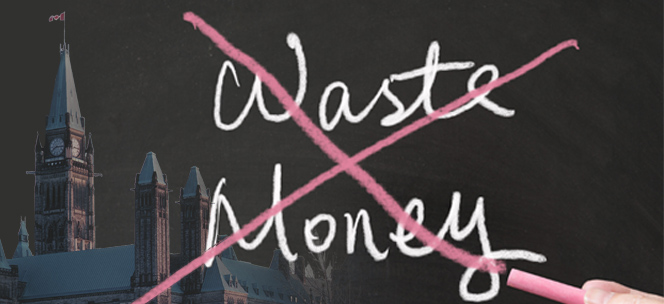Trudeau government spends millions producing podcasts

Dozens of federal departments and agencies have launched podcasts in recent years, with the cost to taxpayers rising to millions of dollars once salary expenses are factored in.
That’s according to government documents, as well as access-to-information records, obtained by the Canadian Taxpayers Federation.
“Canadians need the government delivering passports, not podcasts,” said Franco Terrazzano, CTF Federal Director. “Can anyone explain why taxpayers are paying for government bureaucrats to spend a bunch of money on podcasts nobody listens to?
“This isn’t providing taxpayers value for money, these podcasts are make-work projects for government bureaucrats we don’t need.”
Take the Eh Sayers Podcast from Statistics Canada, which has 21 episodes since January 2021. Episode topics have ranged from gender identity to climate change and misinformation to systemic racism.
The podcast has racked up 229 “estimated” subscribers, according to records.
To date, the podcast has cost $971,417, meaning taxpayers are on the hook for $4,241 for every subscriber. The podcast averages 1,414 downloads per episode and has 39 reviews on Apple.
There have been anywhere from three to five full-time Statistics Canada employees assigned to the podcast, according to the records.
An August 2023 episode on gender identity begins with a “drag story time” reading from “drag king” Cyril Cinder.
During a December 2023 episode on misinformation, the host and guest talk about the problem with giving “both sides of an issue equal time or consideration.”
An earlier episode, from December 2021, focuses on “the arts and crafts movement across Canada, its renaissance and its necessity.”
“If Statistics Canada bureaucrats want to produce podcasts on gender ideology, climate change or misinformation they can fill their boots on their own time with their own dime,” Terrazzano said. “If you want proof there are too many bureaucrats in Ottawa with too much time and tax dollars on their hands, look no further than these podcasts.”
Or take CCI and CHIN: In Our Words, from Canadian Heritage, that seeks to “preserve” the history of the department “through interviews with current and former staff members.”
Between September 2019 and September 2021, when it was discontinued, the podcast released seven episodes. It has 17 reviews on Apple.
That podcast cost taxpayers $155,736, which works out to a cost of more than $22,000 per episode.
The costs included $9,000 for “podcast training and consulting,” $2,000 for equipment and $115,000 in salary expenses for the full-time staff assigned to it.
The First Sixteen podcast, from Agriculture and Agri-Food Canada, explores the “freshest ideas in agriculture and food.” It racked up $30,000 in expenses, on top of the salary costs for the full-time employee who works on it.
Healthy Canadians podcast, from the Public Health Agency of Canada, has four full-time employees assigned to it.
The average compensation for each full-time federal employee is $125,300 when pay, pension, paid time off, shift premiums and other benefits are considered, according to the Parliamentary Budget Officer.
Healthy Canadians also racked up $67,000 in expenses (over and above salary costs), including $34,000 spent on “podcast strategy, editorial planning and employee training.”
Business Unusual, a pandemic-era podcast produced by Immigration, Refugees and Citizenship Canada, had 13 employees working on it, including two deputy ministers and two executives.
Government records released in November 2023 in response to an order paper question from Conservative MP Rob Moore reveal at least $1.7 million in podcast costs.
But that figure undercounts the true cost to taxpayers, because in most cases the departments did not include salary expenses for staff working on the podcasts.
In every case where salary expenses were included, it was the largest portion of costs.
“No wonder the government is more than $1 trillion in debt when it’s scheming up useless make-work projects for bureaucrats that accomplish nothing more than burning through tax dollars,” Terrazzano said. “With massive deficits and soaring debt, these taxpayer-funded podcasts should be the first thing on the chopping block.”